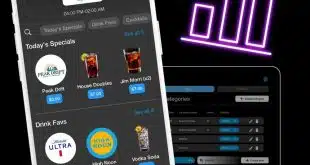Leading U.S. point-of-sale terminal maker VeriFone Systems Inc. late on Wednesday disclosed it was making a cash bid for archrival Hypercom Corp. in what VeriFone says is an effort to expand its presence in continental Europe. Hypercom's board of directors early Thursday rejected the offer, calling it “opportunistic,” and said it had adopted a stockholder rights plan, or poison pill, intended to defend against the bid.
San Jose, Calif.-based VeriFone revealed the bid by releasing a Sept. 27 letter from its chief executive, Douglas G. Bergeron, to Hypercom’s board of directors. In it, Bergeron said, “we are disappointed in your failure to engage in a meaningful discussion” about VeriFone’s Sept. 24 offer to buy Hypercom in a stock transaction. VeriFone said that offer represented a 52% premium over Hypercom’s closing share price of Sept. 23 ($3.84), and a 69% premium over Hypercom’s average share price for the prior 30 trading days. The letter then offered a lower but all-cash deal at $5.25 per share, which VeriFone said represented a 37% premium over the Sept. 23 close and was 52% above the 30-day average. Based on Hypercom’s 53.9 million shares outstanding on June 30, the deal values the company at about $283 million.
“This proposal is extremely attractive on every relevant financial metric,” the letter says. “Consummation of the proposal would insulate your shareholders from the risk that Hypercom faces should it continue to experience disappointing financial and operating results in these challenging markets.”
VeriFone is far larger than Scottsdale, Ariz.-based Hypercom—$266.5 million in revenues for its third fiscal 2010 quarter ended July 31 versus $103.9 million for Hypercom in the second quarter ended June 30. It’s also more profitable, making $18.5 million in the last quarter against a $1.26 million loss for Hypercom. Both companies sell in markets outside the U.S., but VeriFone is weak and Hypercom is strong in Western Europe, having bought France-based Thales SA’s terminal business, Thales e-Transactions, in 2008 for $120 million. “It’s largely a geographical acquisition,” Bergeron said during a brief conference call with analysts on Wednesday. He said he assumed the companies have considerable product overlap.
In a statement, Hypercom said its board and advisors “concluded that the proposal significantly undervalues the company and its future prospects and is not in the best interests of stockholders. Hypercom believes that VeriFone's proposal is opportunistic and intended to disrupt its business, which has successfully taken market share from VeriFone in several markets.”
Hypercom said its stockholder rights plan “would be useful in defending Hypercom against an inadequate offer to acquire the company and would allow all of its stockholders to realize the long-term value of their investment in Hypercom.” The company said it would submit a regulatory filing detailing the plan.
Merchant processing consultant Allen Weinberg, managing partner of Menlo Park, Calif.-based Glenbrook Partners LLC, tells Digital Transactions News that the buyout could benefit the third major U.S./Canadian terminal maker, Ingenico North America, if merchants and processors don’t want a product line entirely from VeriFone. “One would assume it’s going to help Ingenico,” he says. Ingenico, which has dual North American headquarters in Atlanta and Toronto, is a subsidiary of France-based Ingenico S.A. Ingenico tried to buy Hypercom for $332 million in 2008, but the proposal failed (Digital Transactions News, Feb. 11, 2008).
VeriFone has been especially aggressive in moving into new markets and in getting so-called Class A certifications from processors in recent years, Weinberg adds. A merchant acquirer’s Class A certification means that the processor has not only declared that a vendor’s product works, but that it can support that product with service. “One could argue that they [Hypercom] have been outmarketed,” he says.
VeriFone is seeking regulatory approval for the deal. Bergeron even said VeriFone would be willing to divest what he called Hypercom's “small” U.S. business in order to close the deal if regulators raised anti-trust concerns.
Hypercom’s stock was up 45% in after-hours trading Wednesday. On Sept. 23, just over 1 million of its shares traded hands, about three times the normal volume, according to Yahoo! Finance. On Sept. 24, the stock closed at $4.13, up 7.6%.




